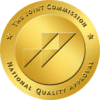Sobriety is a journey that requires commitment and dedication, and avoiding relapse is a key aspect of maintaining sobriety. While relapse is a common occurrence for many people in recovery, there are steps that can be taken to reduce the risk of relapse and stay on the path to sobriety.
One of the most important tips for avoiding relapse is to develop a strong support system. This may include attending support group meetings, connecting with a therapist or counselor, or building relationships with sober friends and family members. Having a strong support system can provide encouragement, accountability, and guidance during difficult times and can help individuals stay committed to their sobriety.
Another important tip for avoiding relapse is to identify and manage triggers. Triggers are situations or emotions that can lead to cravings or the desire to use drugs or alcohol. By identifying and managing triggers, individuals can learn to avoid situations or emotions that may lead to relapse. This may involve avoiding certain people or places, developing healthy coping strategies, or seeking professional help when necessary.
It is also important to maintain a healthy lifestyle in order to avoid relapse. This may include engaging in regular exercise, eating a healthy diet, getting enough sleep, and managing stress through activities such as meditation or yoga. Maintaining a healthy lifestyle can help individuals feel more balanced and centered, reducing the risk of relapse.
Additionally, it can be helpful to set realistic goals and establish a routine. Setting realistic goals can help individuals stay motivated and focused on their sobriety, while establishing a routine can provide structure and stability during times of stress or uncertainty.
It is also important to practice self-care and prioritize mental health. This may involve engaging in activities such as journaling, practicing mindfulness, or seeking professional help when necessary. Prioritizing mental health can help individuals cope with the challenges of recovery and reduce the risk of relapse.
It is important to remember that relapse is not a sign of failure. Recovery is a journey, and setbacks are a natural part of the process. If a relapse does occur, it is important to seek help immediately and work with a support system to get back on track.
Avoiding relapse is a key aspect of maintaining sobriety, and there are steps that can be taken to reduce the risk of relapse. Developing a strong support system, identifying and managing triggers, maintaining a healthy lifestyle, setting realistic goals, practicing self-care, and prioritizing mental health are all important tips for avoiding relapse and staying committed to sobriety. By taking these steps and staying committed to the recovery process, individuals can overcome addiction and live a fulfilling and sober life.









